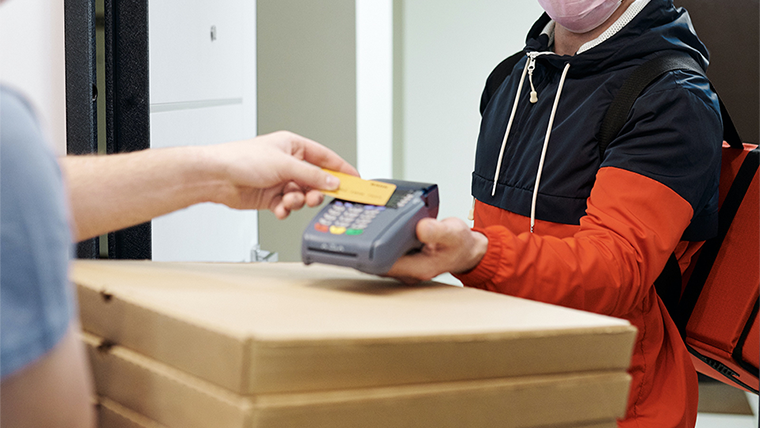
| 

For some years now, financial commentators have expressed their opinions about the fall of cash circulating in British society. Some of these commentators see this is as inevitable and natural, while others sound a word of caution.
While a cashless world may have its advantages, these necessarily depend on having the means to live without cash. With the coronavirus crisis adding to the downward pressure on ATM use and cash spending in general, these issues are thrown into sharper focus.
Is going cashless inevitable?
According to a recent report, cash was used for 6 in 10 transactions before the financial crisis of 2008. Projections from financial institutions say that this figure is likely to drop to as low as 1 in 10 by the early 2030s.
Certainly, the reasons cash is becoming used less are likely to remain valid. Many people don’t like carrying cash because they think it makes them vulnerable to crime; either that, they forget to take it with them, or they can’t be bothered with / can’t find a nearby ATM.
Meanwhile, the ways of making cashless purchases continue to proliferate. Contactless cards mean people don’t have to remember their PIN; cash is no longer accepted in some shops; you can now pay with your phone, or wearable device; and more of the country is getting broadband and wifi. Then, of course, there is the unstoppable rise of online shopping.
Who needs cash?
Unfortunately, not everyone in the UK is able to take advantage of these cashless modes of payment; not by a long way. The Financial Conduct Authority reports that 1.3 million British citizens don’t have a bank account; plus, 4.1 million adults are in severe financial difficulty. Both of these statistics are a stark reminder that the digital world does not yet work for everyone, even in the world’s 6th-richest economy.
There are other important obstacles to going cashless; one of them is geography. People living in rural areas are much less likely to have access to broadband, or even a mobile signal. As many of these people are elderly and isolated, not having access to cash or somewhere to spend it can mean a fundamental lack of basic needs.
What happens next?
While the overall pressure on cash use has been consistently downward, there are factors which promote its use and value in the public eye. Repeated system failures are one of these; another is understandable fear of online fraud and identity theft.
Persistently low interest rates (which the UK has seen for more than a decade) also promote cash use, because people don’t see the point of saving; they’d rather spend their money on something they like.
Finally, one sure way of making cash more popular is in a severe financial crisis; people like to feel actual money in their hands. With the UK set to follow the world into another long-term recession, the demand for cash may see an upturn.
For all of these reasons, the onset of the UK’s cashless society is probably further away than many commentators thought.


